Steven Soderbergh has released more films this year than the number of resolutions I’ve kept in 2025. Starring two Hollywood heavyweights, Michael Fassbender and Cate Blanchett, Soderbergh takes the entertainment route in his first major studio film in years. With a script written by the legendary screenwriter David Koepp, Black Bag not only lives and breathes sleek, it’s also an entertaining joyride for the intellectual viewers. In a world where mediocre, low-brow is celebrated for its lack of risk-taking, Soderbergh seeks to reach into your brain for some smart, sexy fun. Does this make Black Bag the rare antidote to Spring mediocrity? Or is there a reason we didn’t see this one at TIFF?
What’s it all about?
Black Bag follows British intelligence officer George Woodhouse (Michael Fassbender), who is given one week to investigate the leak of a top-secret software program, Severus, with a small pool of suspects—including his wife, Kathryn (Cate Blanchett), along with Satellite Imagery Specialist Clarissa (Marissa Abella), in-house therapist Dr. Zoe Vaughn (Naomie Harris), managing agent Freddie (Thomas Burke), and Colonel James Stokes (Rege-Jean Page). Hosting a tense dinner with the aforementioned intelligence operatives under suspicion, George manipulates the evening with a little truth serum to test their loyalties and secrets, leading to unexpected revelations and rising tensions. As the investigation deepens, George and Kathryn are entangled in a dangerous web of deception, shifting allegiances, and international intrigue as they’re seemingly pitted against each other in a spy v. spy showdown.
Pulling the strings
Like genre-hopper Howard Hawks, Steven Soderbergh has tried his hand in several genres. He may not be a household name, but I’m sure most have seen the Oceans films or Julia Roberts in Erin Brockovich. They circle TNT like a hawk, but little would you know the man behind it. Admittedly, neither do I. I’ve seen less than a handful of Soderbergh’s films, but if there were a movie to convince me to dive deeper, it’d be this one. Black Bag flies by at a brisk ninety minutes, yet you savor each moment. Soderbergh and screenwriter David Koepp earn every emotional beat and plot twist while covering up any holes and conveniences seamlessly. All around, this is textbook filmmaking. Even with the basic exposition scenes, whose purpose is to move the audience from point A to B, Soderbergh delights, maximizing their visual potency. This is most apparent in the exquisite oners that always impress but never distract. In a world where every film overstays its welcome, Black Bag fully knows exactly what it’s going for and sticks to its guns from start to finish. Soderbergh working the triple threat as director, cinematographer, and editor keeps the plot moving at breakneck speed.
Much like the aforementioned Howard Hawks, Soderbergh leans heavily on dialogue instead of action in this spy thriller. I have heard some people echo that the film was too reliant on said dialogue, as most scenes revolve around people playing mind games on each other. What I’ll say is that this isn’t your typical Jason Statham fare; this is the thinking man’s spy film. While it may be short in balls-out action, it’s rife with tension that could only be cut with a knife. Soderbergh’s assured hand ensures the actors don’t just go to town in front of a static camera like a stage play, instead, there’s an immediate visual urgency to every scene. This is a filmmaker who knows exactly how to pull the strings—controlling emotion and perspective with surgical precision. It’s known from the first frame to the last that we’re under the behest of a master manipulator who employs the tools of cinema to play mind games we can’t see a mile away.
Swinging 60s
There’s a very sleek, vintage vibe to the film that feels like you’re back in the 1960s. Despite being set in present-day London, the decor, fashion, poise, and illustrious imagery take you out of this world. There’s an air of polish that harkens you back to the early Bond films or what fellow London expat Sidney Lumet did with The Deadly Affair. The score from longtime Soderbergh collaborator David Holmes brings about a strange, eclectic beat that mixes elements of jazz and eastern music, utilizing instruments like the Tabla, further reminding us of a bygone era. It sets the perfect tone to keep the film singing throughout. Top to bottom, the film’s a real stunner to gawk at. Director-cinematographer Soderbergh often contrasts cool, composed tones in the characters' professional habitats of surveillance and deception with warmer, almost glowing hues in more personal or emotionally charged moments, creating a visual rhythm that heightens the tensions between control and vulnerability.
How I Learned to Love the War
While Black Bag excels at delivering an entertaining espionage thriller told with the utmost storytelling prowess, Soderbergh subtly injects layers of depth. It works on so many levels: as a tense political thriller, a meditation on sustaining trust in relationships, and an exploration of how high-stakes careers grind against emotional intimacy. Yet, the film lets the audience engage with the material however they see fit. Still, it’s hard to ignore how sharply the film taps into today’s geopolitical unease. The film may have its roots in sleek, 60s thrillers, but it’s far more contemporary than meets the eye. With a McGuffin tied to the Ukraine war, the film subtly critiques the dangers of geopolitical interference—how the very tools built to destabilize others end up threatening our very foundation. Granted, in ninety minutes, the film doesn’t attempt a deep dive into the deep well of analysis on foreign interference and surveillance—nor does it need to. It’s not that kind of film, but the political undercurrents are unmistakable.
Spies, Lies, & Marital Ties (Lakers in 5)
But the film’s exploration of interference extends beyond geopolitics into the deeply personal: at its center is a seemingly unshakable marriage that begins to fracture once the agency exploits it for strategic leverage. While the thoughts about geopolitics are more commonplace in espionage films, it’s quite refreshing to see Soderbergh flip those ideas onto the more ‘mundane’ elements of life with the same level of gravitas. Throughout Black Bag, even love becomes a battlefield (apologies for the corniness). Both leads bring the house down. Michael Fassbender once again proves to be THE definition of an A-star, clearly understanding the assignment at hand. He plays George to an absolute tee: a hyper-calculated, emotionless, yet ‘honorable’ man that will stop at no end to protect what’s dear to him. Cate Blanchett (my favorite Hollywood actress) is also wonderful opposite Fassbender as the two sizzle with chemistry. Her effervescent charm and charisma carry the performance, throwing the audience off as we scramble, questioning her allegiances in real time. These are real movie-star performances. It doesn’t stop there, though. The remaining supporting cast of ‘suspects’ are very well-fleshed out. It’s quite astonishing to see such a brisk film manage to depict characters so wholly human and flawed. One of the major credits is to the brilliant opening dinner scene, which places the stakes, the personalities, and dynamics ready-made at the table. The who-dunnit element of any story is only bolstered by characters we’re willing to empathize with or engage with, making the proceedings all the more exciting and unexpected.
Diplomacy and Domestic Drama (match made in heaven)
Even with all these themes and ideas to parse through, the film never spoonfeeds nor rams its views down the audience’s throats. There’s no air of self-importance here because even if you miss the film doubling as a relationship drama, the filmmakers' primary concern is to deliver a taut, entertaining film. There’s an argument to be made that the film glosses over key plot points with reckless speed. Or that the finale felt underwhelming (yes, I’ve heard this from people). From my vantage point, I just don’t see it or I just don’t care. The film handles the exposition and reveals so adeptly with such quick pacing that there’s never a dull moment. The film’s also a brilliant exercise in keeping the audience on their toes with each twist and revelation. We’re forced to chase after the story’s truth, which the director deliberately keeps hidden from us till the very end and makes the pursuit all the more titilating. For all its technical mastery and stylistic flair, the film ultimately delivers a poignant statement about the power of two people finding security in one another—and choosing to protect that bond at all costs. Even with the svelte construction and sexy exterior, Soderbergh explores the domestic in intuitive fashion with an ending that’s the cherry on top (my jaw was literally on the floor). These are the kinds of films that inspire aspiring filmmakers like myself—for their tautness, meticulous attention to detail, and economy of storytelling, where every moment matters. It’s the kind of precision we all strive for. This is all to say that I can confidently declare Black Bag to be the first banger of 2025!





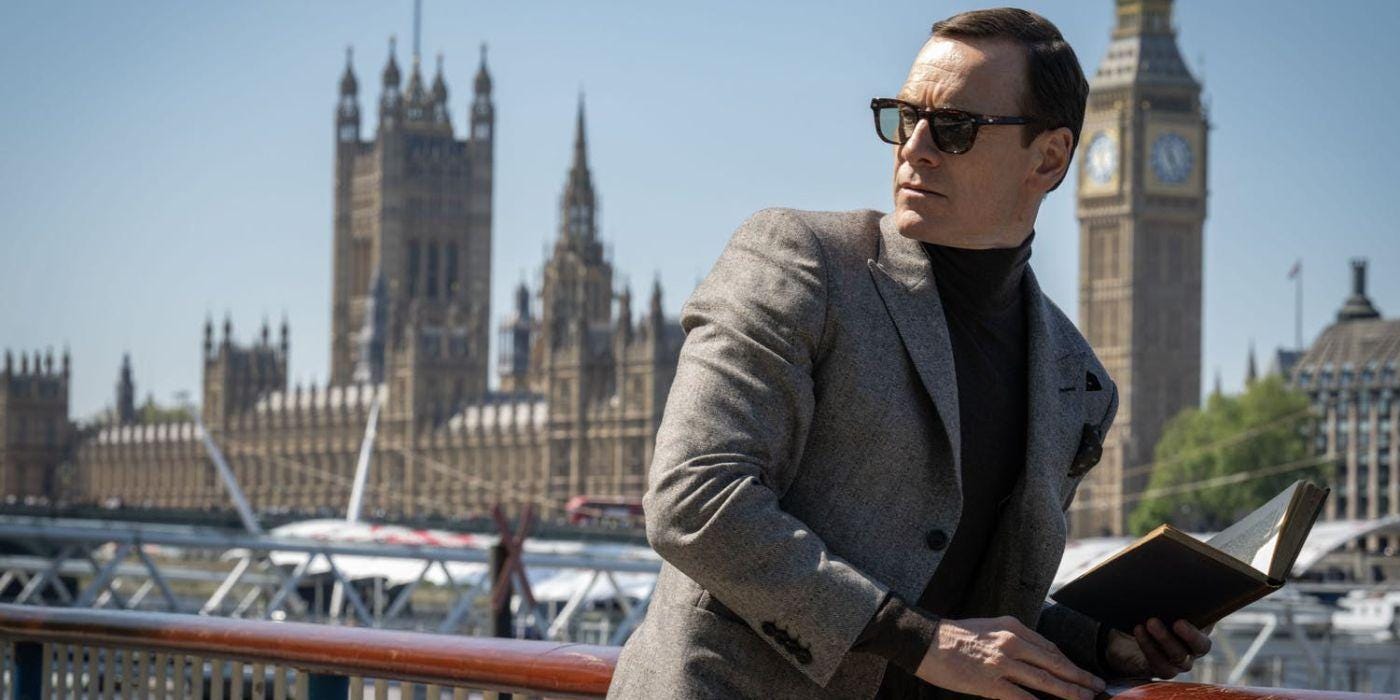
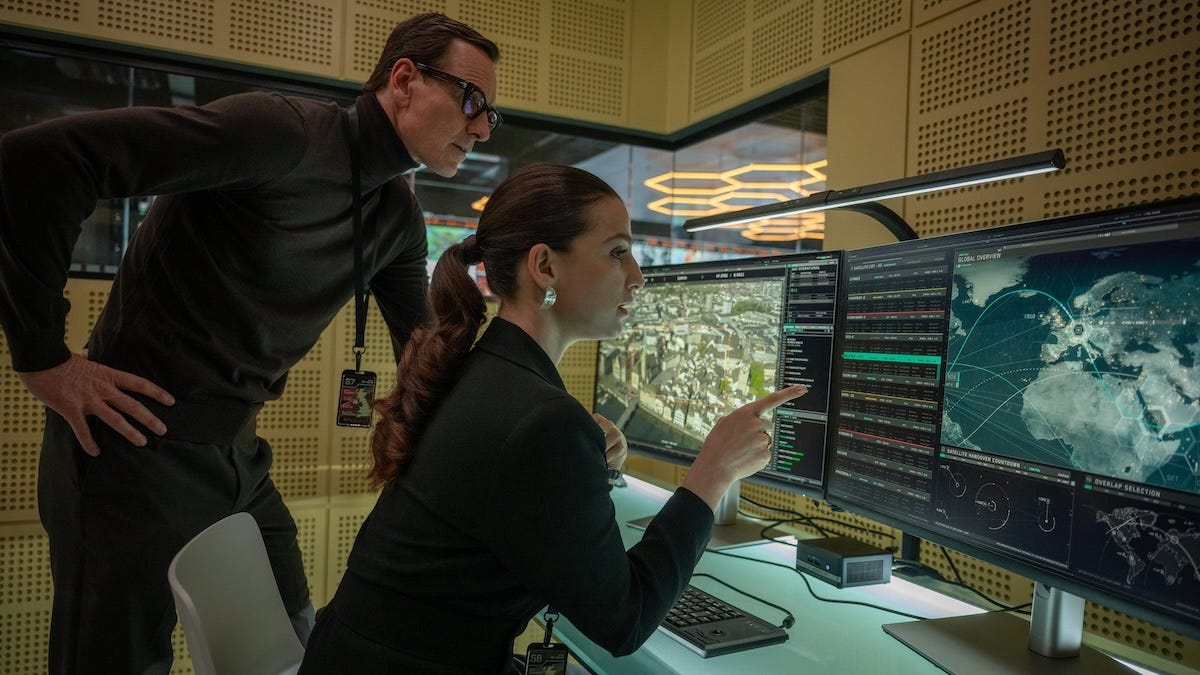
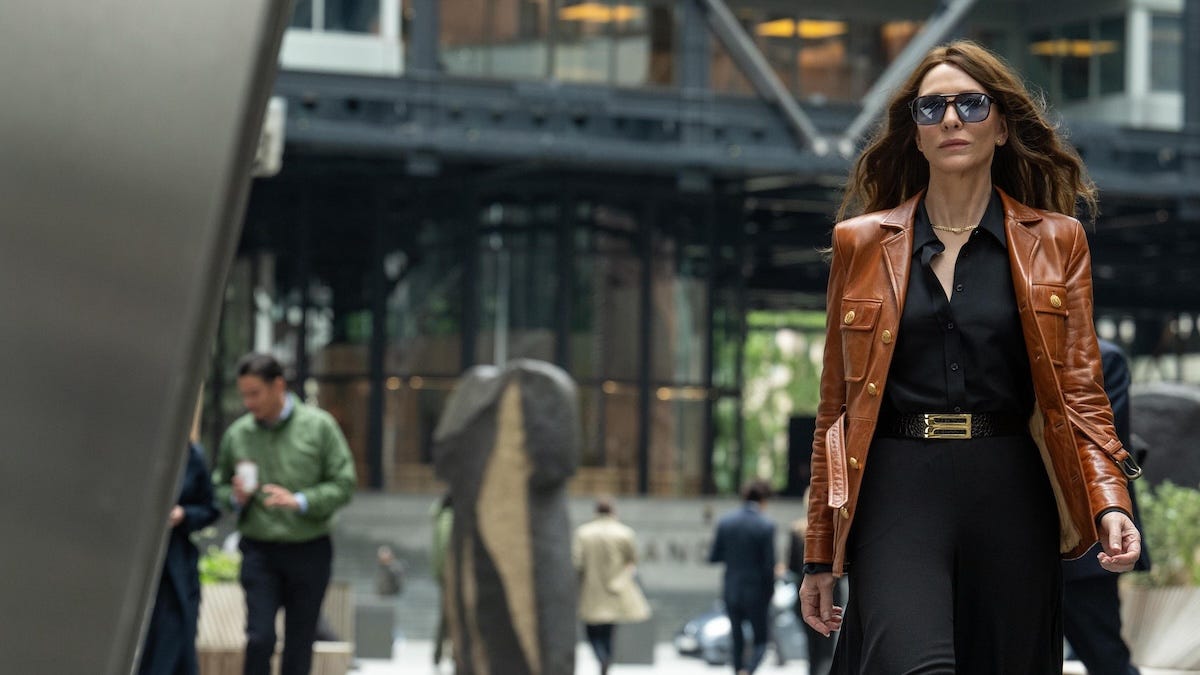
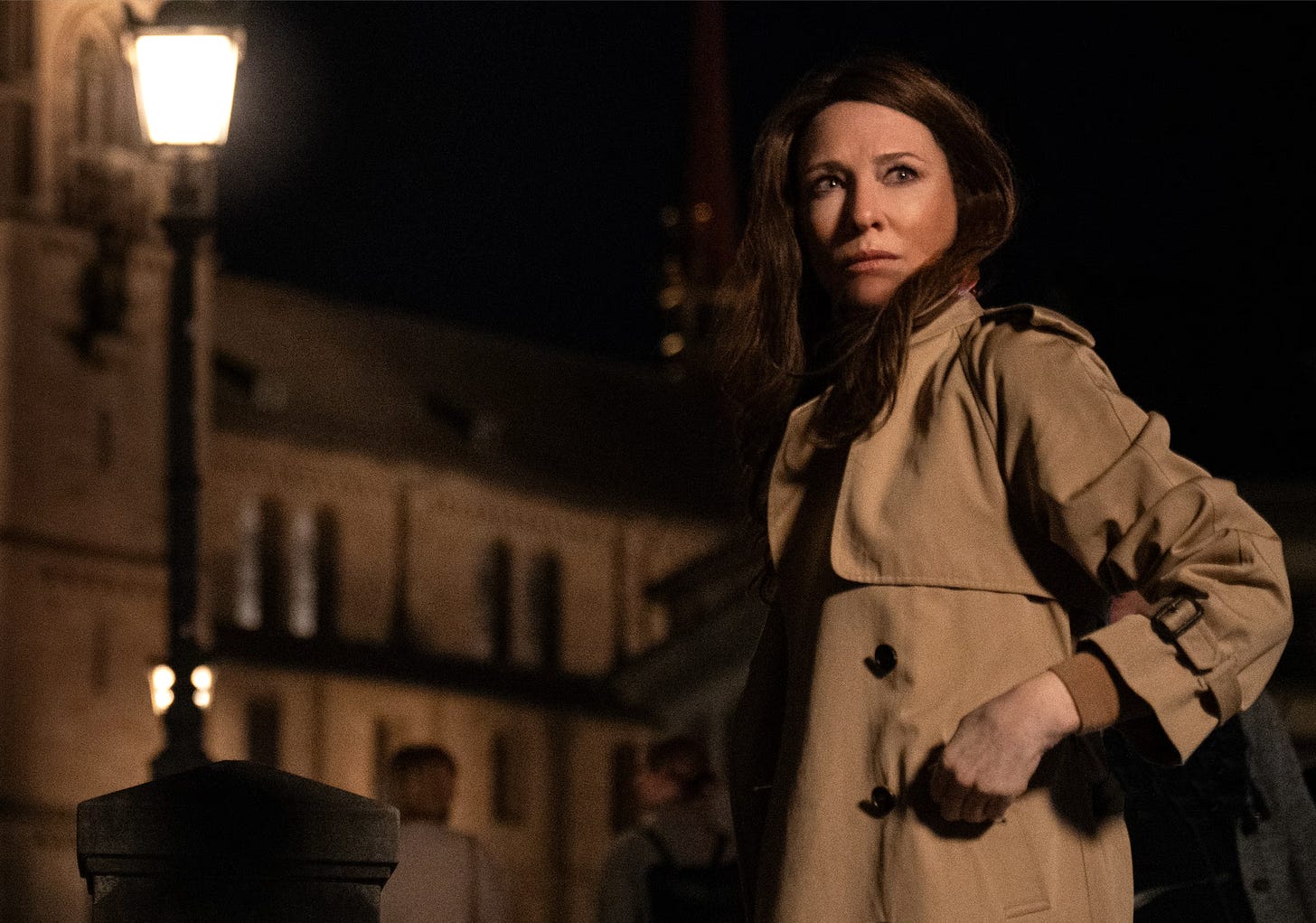
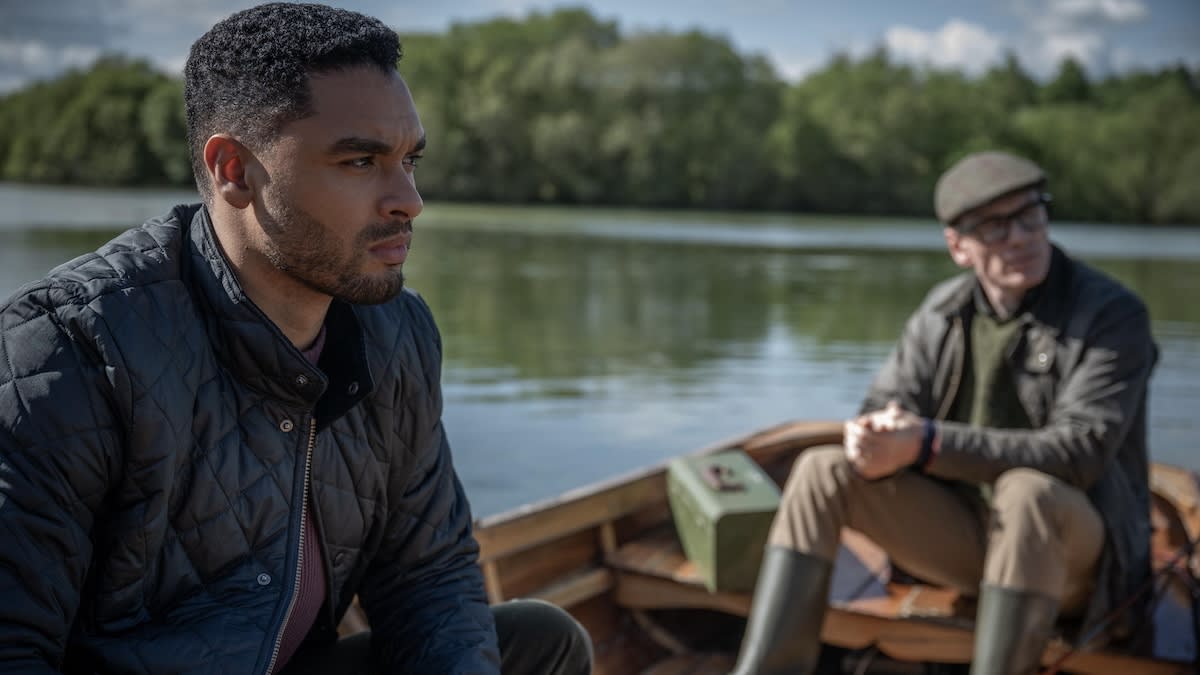
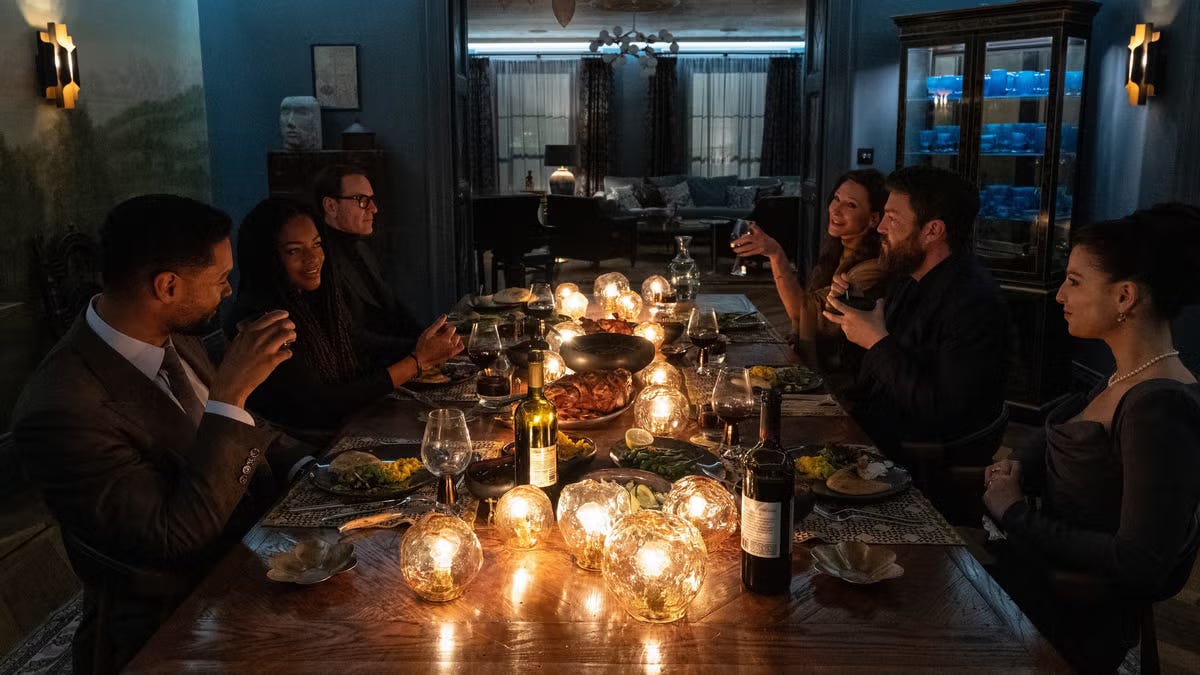
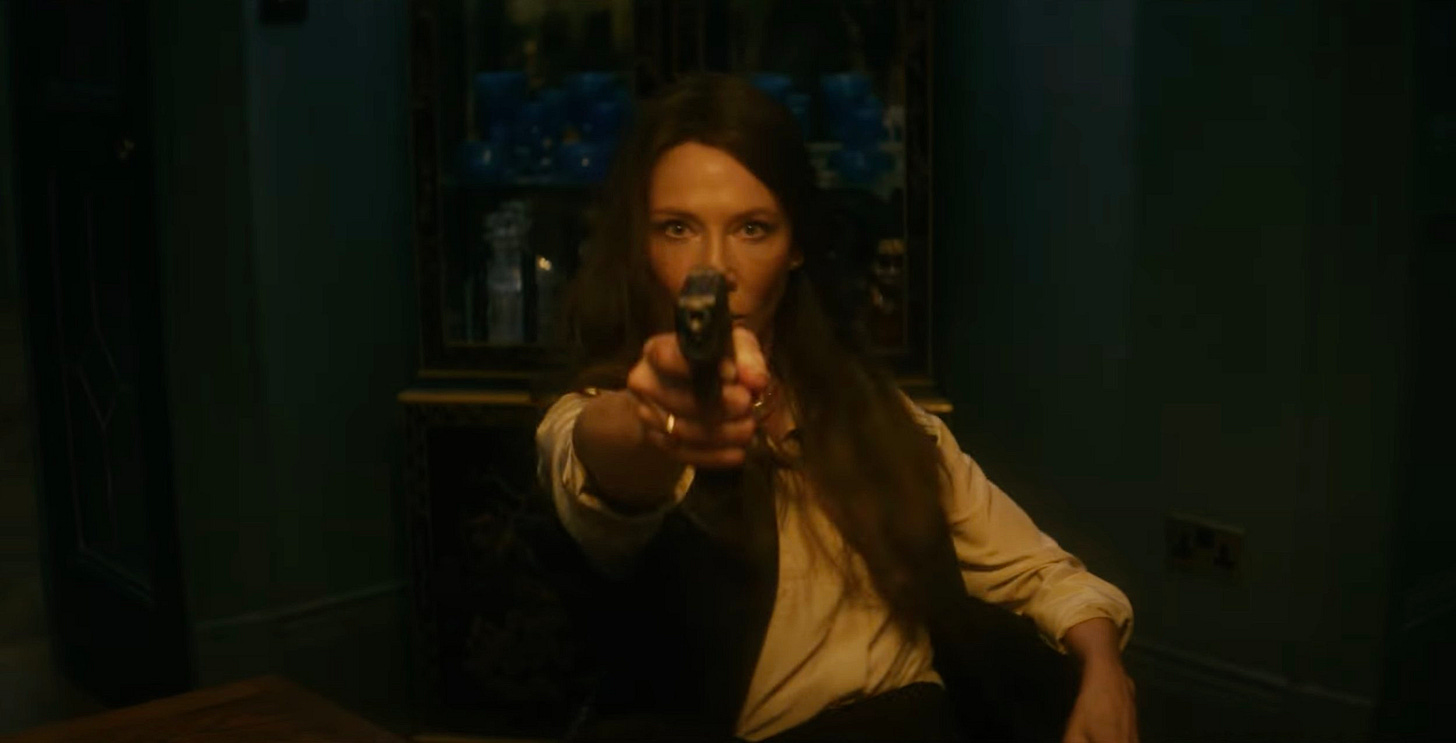
I agree with every word of this (and "circles TNT like a hawk" made me LOL)